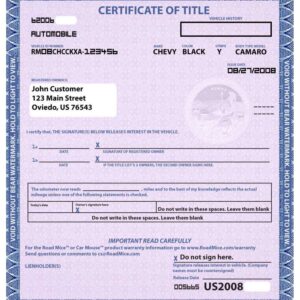allodial title car for sale
Decoding the Allodial Title Car for Sale: Myth, Reality, and Your Vehicle Ownership Journey
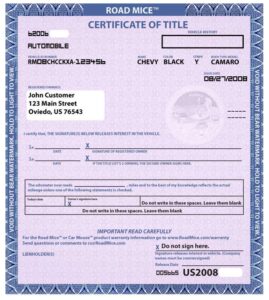
The idea of owning something completely, without any hidden strings, taxes, or governmental oversight, is deeply appealing. This longing for absolute ownership often leads people down fascinating historical and legal rabbit holes, none more intriguing perhaps than the concept of allodial title. While primarily rooted in land ownership, a growing curiosity—and sometimes, a significant misunderstanding—has extended this concept to personal property, leading to searches for an “allodial title car for sale” and questions like “how to get allodial title for car.”
This comprehensive guide will unravel the complexities surrounding allodial title, explore its traditional meaning, dissect its attempted application to vehicles, and arm you with the knowledge needed to navigate this intriguing but often legally perilous territory. We’ll delve into the history, examine the legal realities in various jurisdictions, and provide essential advice for anyone encountering the phrase “allodial title car” in the marketplace.
What is Allodial Title? A Journey Back in Time (and Land Law)
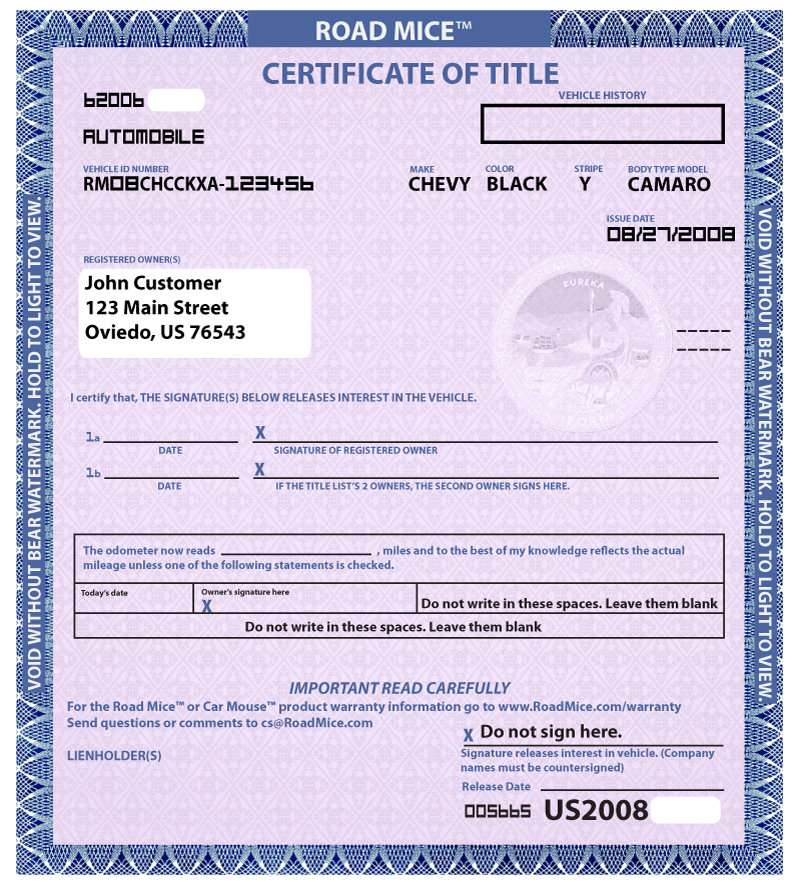
To understand an allodial title car, we first need to grasp what allodial title truly means in its original context: land ownership.
Historically, in feudal systems, land was not owned outright by individuals. Instead, it was “held” from a superior lord in exchange for service, loyalty, or fees. This was known as “tenure.” The King or sovereign was ultimately the “allodial” owner, granting lesser interests to nobles, who in turn granted even lesser interests to their vassals, and so on. This hierarchical system meant that no one truly owned land absolutely; everyone held it from someone else, except for the sovereign at the top.
Allodial title, in its purest, historical definition, refers to land ownership that is completely free and clear of any superior lord, obligation, or feudal service. It signifies absolute ownership, without any encumbrances, conditions, or acknowledgments of a superior title. The land is held “of no one” but the owner.
In modern legal systems, especially those derived from English common law (like the United States, Canada, Australia, and the UK), truly allodial title as it existed in feudal times is exceptionally rare, if it exists at all. Even what we consider “absolute ownership” today, such as fee simple absolute, is not entirely allodial. While fee simple gives the owner the most extensive rights possible, it is still subject to the inherent powers of the state or sovereign. These powers include:
- Eminent Domain (Expropriation): The government’s right to take private property for public use, with just compensation.
- Taxation: The government’s right to levy property taxes.
- Police Power: The government’s right to regulate land use for public health, safety, and welfare (e.g., zoning laws).
- Escheat: The government’s right to take ownership of property when an owner dies without heirs and without a will.
So, when people ask “what is allodial title,” “what’s an allodial title,” or “what is a allodial title,” the answer in the modern context is usually that it’s a historical concept that has limited, if any, direct application to everyday property ownership as most people understand it. The idea that “is allodial title real” for land today is generally yes, but in a highly nuanced way, usually referring to certain rare, historical grants or lands held by the government itself. Some private lands may claim allodial title based on specific historical grants or unique legal interpretations, but these are exceptions, not the norm.
For those interested in land, searching for “allodial title land for sale” might lead to properties with unique historical backgrounds or those marketed by proponents of specific legal theories. However, extreme caution and thorough legal due diligence are always advised in such cases.
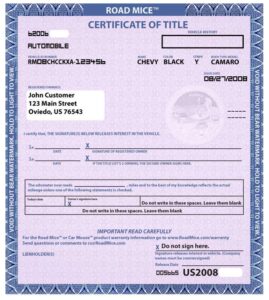
The Leap to the Asphalt: Allodial Title and Vehicles
Now, let’s turn our attention to the perplexing, yet increasingly searched, concept of allodial title car and allodial title for car. How did a term deeply rooted in medieval land tenure find its way to automobiles?
The application of allodial title to vehicles primarily stems from certain movements, often associated with “sovereign citizens” or similar groups, who challenge the authority of government over personal property and individual liberties. These individuals often believe that:
- Vehicle registration, driver’s licenses, and insurance are forms of government control or taxation that deprive them of their “absolute” property rights. They view the state-issued title as a form of lien or encumbrance, implying that the state has a superior claim to the vehicle.
- By declaring “allodial title” over their vehicle, they can remove it from the jurisdiction of state laws, making it exempt from registration, licensing, traffic laws, and even taxation. They seek to establish their vehicle as “private property” that operates outside conventional legal frameworks.
- They believe that paying taxes or fees for a vehicle means they are consenting to be governed by the state, an act they wish to avoid.
The proponents of getting allodial title for a vehicle often describe a process involving filing specific declarations, affidavits, or self-created documents with various offices (sometimes even with the local county recorder, an office traditionally dealing with land records, not vehicle titles). They might issue their own “allodial car title” certificate or declare the vehicle a “conveyance” or “private automobile” not subject to commercial regulations.
Keywords like “how to get allodial title for car,” “how to get allodial title for vehicle,” “allodial title for a car,” and “allodial title for my car” reflect this desire to separate one’s vehicle from the standard legal and administrative framework. These searches indicate a clear interest in understanding the process, however unconventional or legally unsupported it may be.
The Legal Reality: Why Allodial Car Titles Face Hurdles
Despite the earnest beliefs of some individuals, the overwhelming legal consensus in the United States, Canada, the United Kingdom, Australia, and virtually all modern nations is that allodial title for vehicles does not exist in any legally recognized form.
Here’s why:
- Vehicle Titling is Different from Land Titling: Modern vehicle titling systems are designed for different purposes than land ownership. They primarily serve to:
- Identify ownership conclusively: Essential for preventing theft and facilitating legitimate sales.
- Record liens: Crucial for financing and secured lending.
- Ensure public safety: By linking vehicles to registered owners, authorities can enforce traffic laws, manage accidents, and track dangerous vehicles.
- Generate revenue: Through registration fees and sometimes sales taxes, which fund road maintenance and other public services.
- Regulate road use: Vehicles operate on public roads, and their use is subject to regulations designed for the common good.
- State Sovereignty over Roadways: Governments exercise jurisdiction over public roads and highways. Driving a vehicle on these public thoroughfares is generally considered a privilege, not an absolute right, and is conditioned upon compliance with state laws, including registration, licensing, and insurance.
- Lack of Statutory Basis: There are no statutes or established common law precedents in any U.S. state, Canadian province, or other major jurisdiction that recognize or provide a mechanism for obtaining an “allodial title” for a car. The processes advocated by sovereign citizen groups for “how to get allodial title” or a “certified allodial title form” are not recognized by Departments of Motor Vehicles (DMVs), law enforcement, or courts.
- Consequences of Non-Compliance: Attempting to operate a vehicle without a legally recognized title, registration, insurance, or driver’s license (based on claims of allodial title) can lead to severe legal consequences, including:
- Fines
- Vehicle impoundment
- Arrest
- Jail time
- Civil liability in case of an accident
Even when specific keywords like “allodial car title Texas,” “allodial title in the US,” “allodial title in united states,” “allodial title in Canada,” “allodial title in USA,” “allodial title in Texas,” “allodial title in california,” “allodial title new jersey,” “allodial title in florida,” “allodial title in georgia,” “allodial title in ga,” “allodial title in kansas,” “allodial title in kentucky,” “allodial title in ky,” “allodial title in louisiana,” “allodial title in maryland,” “allodial title in michigan,” “allodial title south carolina,” “allodial title in sc,” “allodial title north carolina,” “allodial title in nc,” “allodial title new mexico,” “allodial title in nevada,” or “allodial title in india” are searched, the legal reality remains consistent: these jurisdictions do not recognize an allodial title for vehicles. While some states like Texas or South Carolina may have historical footnotes regarding allodial land ownership, this never extends to automobiles. The same applies to queries about “allodial title in the UK” or “allodial title in Australia” – their legal systems for vehicles operate on similar principles of state registration and control.
Navigating the Market: When You See an “Allodial Title Car for Sale”
If you encounter an “allodial title car for sale,” whether online or through a private seller, it’s a significant red flag that requires extreme caution. What the seller likely means is that they claim to hold allodial title to the vehicle and therefore believe it is exempt from standard registration, licensing, and insurance requirements.
What this typically signifies for a buyer is:
- No Legally Recognized Title: The seller likely does not possess a conventional, state-issued title certificate that can be legally transferred to you. They might offer a self-made document or rely on a “bill of sale” that does not conform to state regulations.
- Inability to Register: You will almost certainly be unable to register the vehicle in your name with the Department of Motor Vehicles (or equivalent agency) in your state or country. Without registration, you cannot legally drive the vehicle on public roads.
- Insurance Problems: Insuring a vehicle without a valid registration and title is usually impossible. Driving uninsured carries huge financial and legal risks.
- Law Enforcement Issues: Operating such a vehicle will likely lead to stops, citations, impoundment, and potential legal trouble with law enforcement agencies, who will view it as an unregistered and potentially uninsured vehicle.
- No Recourse: If the transaction goes wrong, or if you discover the vehicle is stolen or has existing liens, you will have very limited legal recourse because you bypassed the standard, legally recognized process of vehicle transfer.
- Resale Difficulties: You will find it virtually impossible to legally resell a vehicle that does not have a clear, state-recognized title.
Therefore, when considering “how to buy a car in allodial title,” the stark reality is that you cannot legally do so in the sense that the vehicle would be exempt from standard laws. Any transaction marketed as such is likely an attempt to circumvent established legal frameworks, posing significant risks to the buyer. The “cost” of an allodial title for a car, if someone were to charge you for “obtaining” it, would be for a legally meaningless document, not a recognized form of ownership.
Geographic Scope & Specific Inquiries: Addressing Regional Allodial Title Notions
The concept of allodial title is sometimes mistakenly associated with specific regions or states, leading to searches like:
- “what states have allodial title”
- “allodial title in the UK”
- “allodial title in Australia”
- “allodial title in california”
- “allodial title land for sale” (again, distinguishing land from cars)
- “allodial title south africa”
- “allodial title in south carolina”
- “allodial title in sc”
- “allodial title north carolina”
- “allodial title in nc”
- “allodial title new jersey”
- “allodial title in florida”
- “allodial title in georgia”
- “allodial title in ga”
- “allodial title in kansas”
- “allodial title in kentucky”
- “allodial title in ky”
- “allodial title in louisiana”
- “allodial title in maryland”
- “allodial title in michigan”
- “allodial title south carolina”
- “allodial title new mexico”
- “allodial title in nevada”
- “allodial title in india”
While a truly allodial system for land might be discussed in historical or theoretical legal contexts for certain regions (e.g., some argue that early Spanish or French land grants in Louisiana, Texas, or California might have approximated allodial tenure before becoming subject to U.S. law, or that certain tribal lands might hold a distinct form of inherent sovereignty), it’s crucial to reiterate: these discussions pertain to real estate, not vehicles.
No U.S. state, Canadian province, or other common law jurisdiction provides a legal pathway to claim or hold allodial title specifically for a motor vehicle. The legal framework for vehicle ownership and operation is universally one of registration and licensing, subject to government regulation for public safety and revenue.
Practicalities and Precautions for Your Vehicle Ownership Journey
Understanding the distinction between historical land concepts and modern vehicle law is paramount. If you encounter someone promoting an “allodial car title” or an “allodial title car for sale,” here’s what you should do:
- Be Skeptical and Educate Yourself: Recognize that such claims are not legally recognized by mainstream authorities. Do your research from reputable legal sources.
- Insist on Standard Procedures: For any vehicle purchase, always insist on a clear, state-issued title certificate. Verify the VIN (Vehicle Identification Number) against the title and ensure there are no outstanding liens. Complete the transfer of ownership according to your jurisdiction’s DMV requirements.
- Consult Legal Counsel: If you are ever unsure about the legality of a vehicle title or a proposed transaction, consult with an attorney specializing in vehicle law or property law in your jurisdiction.
- Report Suspicious Activity: If you believe someone is attempting to defraud buyers or encourage illegal activity by selling “allodial title cars” that cannot be legally registered, consider reporting it to consumer protection agencies or law enforcement.
It’s also worth noting the presence of specific keywords like “allodapi etaireia” and “yiallouros auto services.” “Allodapi etaireia” translates from Greek to “foreign company,” which is unlikely to be directly related to the concept of allodial title for cars in the legal sense, though it might appear in searches due to linguistic overlap or unrelated business contexts. “Yiallouros auto services” appears to be the name of a specific auto service business. Unless these entities are specifically promoting or involved in the “allodial title car” movement, they are generally unrelated to the legal concept discussed here. Their appearance in the keyword list suggests a broader, perhaps accidental, association or a niche search query from individuals looking for these specific businesses who also have an interest in the allodial title concept.
Conclusion: Clarity on the Road Ahead
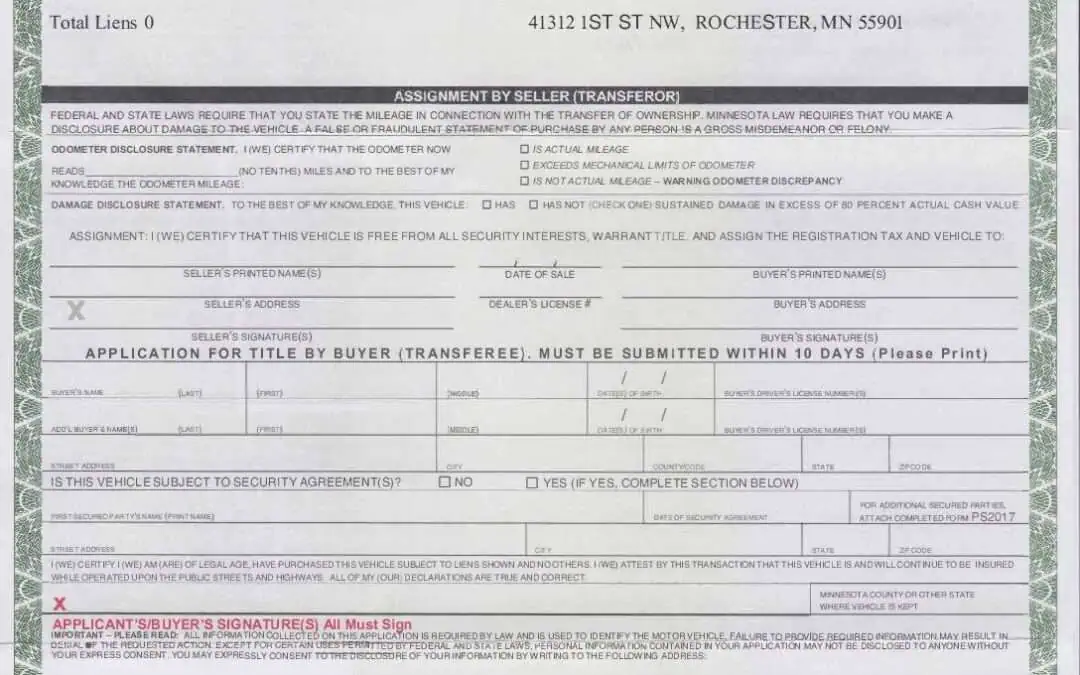
The allure of absolute, untaxed, and unregulated ownership is powerful. For some, the idea of an allodial title car represents a pathway to true freedom from governmental oversight. However, the legal landscape surrounding vehicle ownership is clear and firmly established. Allodial title, in its traditional and legally recognized form, applies to land with specific historical contexts and is exceedingly rare. For motor vehicles, it simply does not exist as a legally recognized form of ownership in any modern jurisdiction.
Attempting to apply these historical land concepts to cars in an effort to circumvent registration, insurance, or taxation laws is not only legally unfounded but also carries substantial risks, including fines, impoundment, and potential criminal charges. When you see an “allodial title car for sale,” proceed with extreme caution and remember that legitimate vehicle ownership always involves a clear, state-recognized title and adherence to all applicable laws. Your journey on the open road should be one of freedom and safety, built on a foundation of sound legal practices.
Frequently Asked Questions (FAQs)
Q1: What is allodial title?
A1: Allodial title traditionally refers to absolute ownership of land, free from any superior lord or feudal obligations. In modern legal systems, particularly those derived from common law, truly allodial title for land is rare, with most forms of ownership (like fee simple) still being subject to state powers such as taxation, eminent domain, and police power.
Q2: Is an allodial title car legal?
A2: No. An “allodial title car” is not a legally recognized concept in any U.S. state, Canadian province, the UK, Australia, or other major jurisdictions. Vehicle ownership is governed by specific titling and registration laws that do not include provisions for allodial title.
Q3: Can I really get an allodial title for my car?
A3: You cannot legally obtain an allodial title for your car that would exempt it from standard registration, licensing, insurance, and traffic laws. Any documents or claims suggesting otherwise are not recognized by motor vehicle departments or courts.
Q4: What are the risks of buying a car with an allodial title?
A4: The risks are significant. You will likely be unable to legally register the vehicle, obtain insurance, or transfer ownership. This can lead to fines, vehicle impoundment, legal disputes, and difficulties reselling the vehicle. It may also expose you to legal liability if involved in an accident.
Q5: Do any states recognize allodial title for vehicles?
A5: No, no U.S. state formally recognizes or provides a mechanism for allodial title for vehicles. While some states like Texas or South Carolina may have historical footnotes regarding allodial land grants, this does not extend to automobiles.
Q6: How is “allodial title” for land different from “allodial title” for a car?
A6: Allodial title is a historical concept primarily related to land ownership, signifying absolute ownership without a superior lord. For cars, the concept is generally a misunderstanding or misapplication of this land-based term, as modern vehicle laws globally require state registration and titling for legal operation on public roads.
Q7: What about “how to get allodial title in Canada,” “allodial title in the UK,” or “allodial title in Australia”?
A7: The situation is the same in these countries. Modern vehicle laws require state-issued titles and registration. The concept of allodial title for personal property like cars is not recognized within their legal frameworks.
Q8: What should I do if someone offers me an “allodial title car for sale”?
A8: Exercise extreme caution. Do not proceed with the purchase unless the seller can provide a standard, state-issued title that can be legally transferred into your name at your local Department of Motor Vehicles. Insist on following all standard legal procedures for vehicle purchase.
Q9: How much does an allodial title for a car cost?
A9: Since an allodial title for a car is not a legally recognized document, any cost associated with “obtaining” one would be for a non-official, legally meaningless piece of paper. You should not pay for such a “title.”
Q10: What does “allodapi etaireia” or “yiallouros auto services” have to do with this?
A10: These terms appear to be unrelated to the legal concept of allodial title for vehicles. “Allodapi etaireia” is Greek for “foreign company,” and “yiallouros auto services” is a specific business name. Their appearance in searches alongside “allodial title car” is likely coincidental or due to unrelated search queries. They do not typically offer services related to obtaining allodial titles for cars.
Showing the single result



